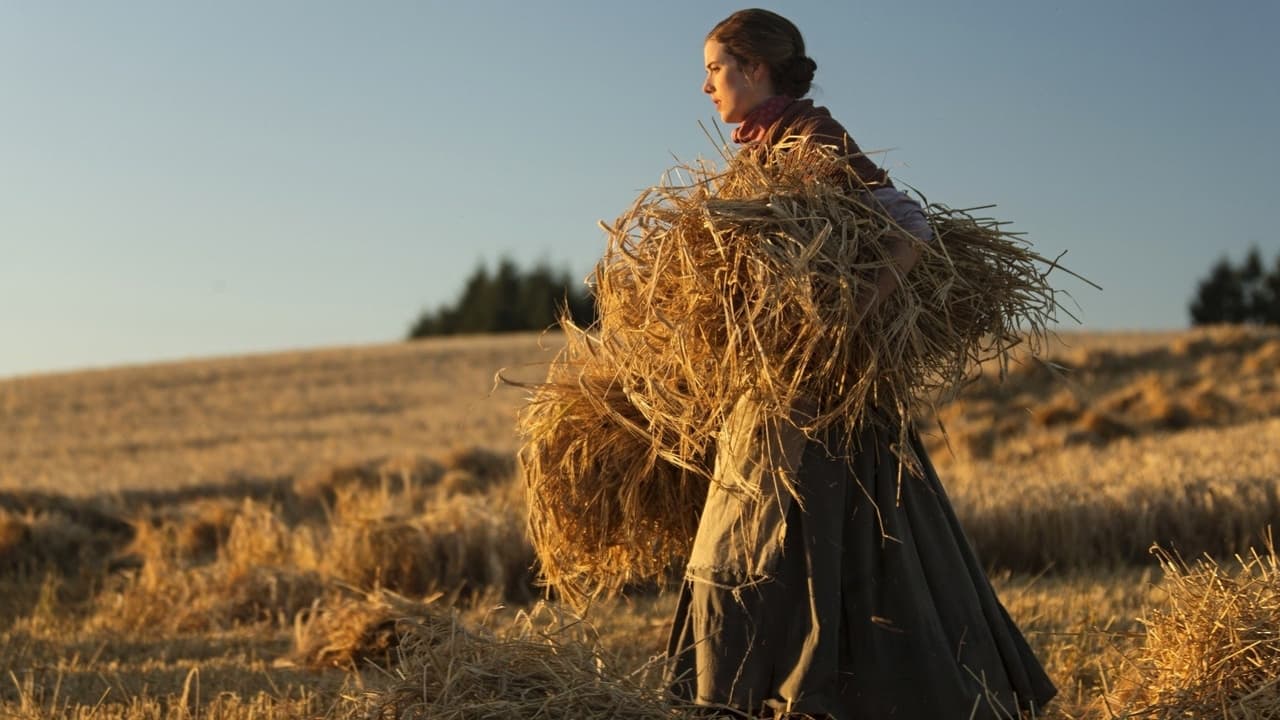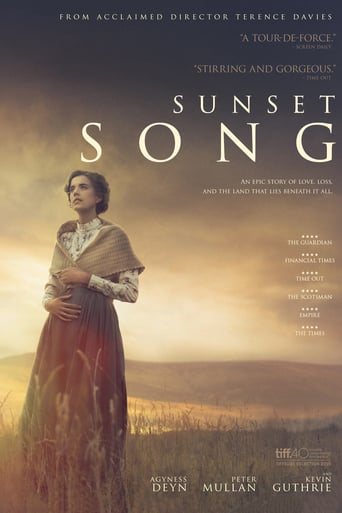

I think this is a new genre that they're all sort of working their way through it and haven't got all the kinks worked out yet but it's a genre that works for me.
... View MoreAs somebody who had not heard any of this before, it became a curious phenomenon to sit and watch a film and slowly have the realities begin to click into place.
... View MoreThe film may be flawed, but its message is not.
... View MoreThis movie tries so hard to be funny, yet it falls flat every time. Just another example of recycled ideas repackaged with women in an attempt to appeal to a certain audience.
... View MoreAs I watched this movie I grew sadder with each passing minute. Not because the movie was sad but because this movie was someone's baby and it is never pleasant to see someone's dreams and hard work come to nought. I would like to say this is a great movie. Failing that I would like to say it is a good movie. However I cannot do this, because it is not. This is not so much a movie but a set of fragments, literally EVERY one of which either makes no sense, is totally and unrealistically contrived, overacted, irrelevant, and in many cases all of the above. We have a classroom scene in which someone says "oh,oh,oh butin", very interesting I'm sure but...why? We have two girls walking along a path, saying ridiculous things and displaying lesbian tendencies but why? After this we never see one of these girls again. We have a girl called Christine - annoyingly called by everyone "Chris" – surely a nickname that would only used by her family and a few close friends. This "Chris" has a brother with whom she seems to have a relationship that is close enough to be disturbing. For no apparent reason the brother starts spouting nonsense rhymes which include the work "Jehovah". Apparently his father has been stalking him for he is waiting outside the door eavesdropping and beats the living daylights out of the son for using the Lord's name in vain. The father ostentatiously cleans his gun, so we know that we can expect a scene involving this. Sure enough in the next scene, the son, again for reasons which are not clear, against all advice, uses said gun and once again gets the living daylights beaten out of him by his Father. Subsequently we see the brother half naked, cradled in his sister's arms, as of course you do in these circumstances. The marks on the son's back are completely inconsistent with the punishment he has received, and as regular as graph paper. The father gets a new harvester and although presumably the arrival of such an expensive, large and unusual piece of equipment must surely have been the talk of the community, apparently the son is only aware of it once it is put into action. Despite the wonder of this device neither father nor son is in the least bit interested in its results. Harvesting the cut wheat apparently consists of picking it up and putting it down again a few feet away. A worker randomly arrives from nowhere and the father is he hires him immediately when just a minute before he didn't need anyone. Chris delivers said worker a meal and he fondles her legs, with Chris just standing there seemingly enjoying it. What does this mean? Next up we have a gratuitous look at Chris admiring her nude self in the mirror – ah, proving what? We never see the worker again. There is a storm, simulated by what appears to be a couple of sparklers tied to some fence posts. Chris goes out to look after the horses. For reasons difficult to explain the neighbours are also out shouting "Chris, Chris", as you do in a storm. Fast forward, Chris gets married. There is a brief and pointless appearance by a Miss Melon who duly leaves having contributed nothing. One night the father in law suddenly arrives in uniform – apparently they give these to you as soon as you enlist. In what seems to be an outtake of village of the dammed we see scores of people wandering through the cornfields to get to church. By and by the husband also suddenly walks out of the house to enlist. Sometime later he just as suddenly arrives back a completely different person, I mean a COMPLETELY different person. Perhaps this is supposed to mean something but I don't know what. In due course he leaves again. Chris gets a message saying her husband has been killed and falls about crying "they're lying" about 100 times. We see the husband in flashback before he is shot for desertion. Miraculously his original personality has returned and almost as miraculously in time of war his father is there to visit him. Outside deserters are getting shot one after the other in some sort of assembly line when in actuality only 400 people deserters were shot in the entire course of the war. The husband is shot by 4 riflemen, as opposed to the usual dozen, and what's more they do so with no orders. Meanwhile back at home Chris is talking to her husband's shirt, yes that's right TALKING TO HIS SHIRT, saying that she understands, which is just as well because none of the audience do. Stringing together all these meaningless fragments of nothing we have a turgid narration that seems as it was written by a "random angst generator" on a computer. I don't think I have ever heard so much rubbish and cod-philosophy in my life - the only message I got out of it is that apparently "Chris is the land", very deep I am sure. None of the characters are the least bit interesting or likable. I could care less about any of the characters – Chris, the father, the mother, the brother, the husband – none of whom resemble, act like, talk like, think like, any rational human being I have ever met. And what does it all mean? Is there actually a point? War is Hell? Life in Scotland in the 1910's was Hell? Being a woman is Hell? Men are pigs? It is very sad that so much effort and care resulted in such a poor film. I truly hope the makers were pleased with the results but to me it is ultimately one long facade behind which lurks precisely nothing.
... View MoreWhen I saw it advertised it looked great, I thought it was going to be awesome, but for me, it is not. Starting from there are things of the script that I do not understand, that the protagonist does not convince me, everything is regular but does not come to exploit.The protagonist is a good actress, but it is not a crack and does not stand alone the weight of the film. I do not like his character and I think he is not well taken.The picture is quite good, but it does not become impressive.It does not really have nice flat or well-composed planes, but they are normal.The secondary characters are all well, but the husband has no charisma either.In the area spoilers I explain some thingsThe fact is that it is not a bad movie, but it is as if I constantly want to become very great and never come.Spoiler:I do not understand why she does not invite her siblings to her wedding, neither the elder nor the little ones, only her uncles. I do not understand why she does not leave the father. And above all it seems to me that the character does not take care of the company, but rather come and start another life, his. I do not know who that man in the war is in the house, maybe in the novel explains it, but in the film no.
... View MoreBeautiful landscapes, a visual feast. Excellent acting. The writing is prose. Don't miss this one. My only criticism is there is a bit too much frontal nudity for me. The music is wonderful and heart felt, though I do question the choice of an American Applacian tune in the beginning. This role of the father was so well depicted. If you love film, you must see this. If you love Scotland, you must see this. If you have ever loved, you must see this. Just a haunting film. This film is "The Great Santini" meets "Joyous Noel" meets Far From the Madding Crowd". The overvoice of Christne is not to be missed, just an excellent device. This is one you will want to see again and again. This is the best historical film I have seen in years....and I have seen many.
... View MoreThe movie makers decided to take Lewis Grassic Gibbon's novel about Chrissie and the impact of WW1 on the whole community and turn it into a story about one couple. The novel already creates an insular, boxed in feeling of one community following old Scots' ways and takes just one corner of the box. It makes the story claustrophobic. We lose the impact of loving all the ancillary characters like Chae and Long Rob, so their fates don't become important to us- it is just an after thought comment in the film. And the beautiful concluding speech by the pastor under the ancient stones is not in the film, so the whole idea of WHOSE Sunset Song it is does not strike us. The film is beautiful and lead actors good, but the poor decisions on how to frame the story line made it ultimately a disappointment if like me, you love this novel. The old Masterpiece Theatre version was superior.
... View More